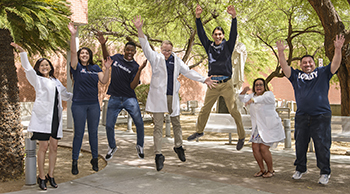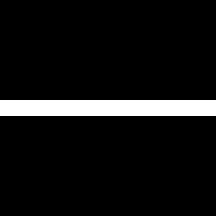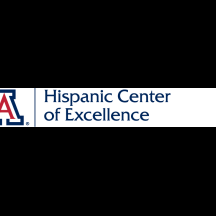 Health disparities affecting Hispanics in the United States are a major cause of avoidable suffering and impose significant costs to the U.S. health care system. Cultural competence (or the practice by which health care providers acquire a better understanding of health beliefs, cultural and linguistic backgrounds, and obstacles to effective care faced by groups of people who suffer from health disparities) is seen as foundational for reducing health disparities. The Arizona Hispanic Center of Excellence (UAHS-HCOE) is committed to enhancing the cultural competence of healthcare providers serving the diverse Hispanic communities of the state of Arizona. To this end, UAHS-HCOE offers presentations, workshops, and online training courses on cultural competency and Culturally and Linguistically Appropriate Services (CLAS) standards for health professionals, faculty and students.
Health disparities affecting Hispanics in the United States are a major cause of avoidable suffering and impose significant costs to the U.S. health care system. Cultural competence (or the practice by which health care providers acquire a better understanding of health beliefs, cultural and linguistic backgrounds, and obstacles to effective care faced by groups of people who suffer from health disparities) is seen as foundational for reducing health disparities. The Arizona Hispanic Center of Excellence (UAHS-HCOE) is committed to enhancing the cultural competence of healthcare providers serving the diverse Hispanic communities of the state of Arizona. To this end, UAHS-HCOE offers presentations, workshops, and online training courses on cultural competency and Culturally and Linguistically Appropriate Services (CLAS) standards for health professionals, faculty and students.
Using CLAS Standards & Cultural Competence to Mitigate Health Disparities
The online training course entitled: “An Introduction to Culturally and Linguistically Appropriate Services (CLAS) and Minority Health Disparities,” is now available to all users free of charge. The course has been specifically designed to appeal to professionals from all levels of the healthcare environment. All members of the healthcare professions, ranging from nurses, doctors, and PAs to front desk staff and receptionists, may take the course and learn about Culturally and Linguistically Appropriate Services (CLAS), health disparities, and cultural competency issues surrounding access to care for minority populations, with a specific focus on Mexican American populations.
Introduction to Cultural Competence and Health Disparities
Introduction to Cultural Competence and Health Disparities is a classroom-based, two-hour session for first year medical students taught in the “Foundations” section of the curriculum. Before attending the session students are required to complete the online CLAS course described above. During the session, students engage in facilitated small group discussions of cultural self-awareness and practice a skills-based approach to cultural competence and eliciting patient health beliefs during the medical encounter. In the last part of the session, students participate in an interactive lecture on health beliefs and working with underserved populations.
Working with Health Interpreters and Culturally Competent Interviewing Skills
Working with Health Interpreters and Culturally Competent Interviewing Skills is a two-hour session taught in small groups to first year medical students as part of their professional and ethical development thread.



